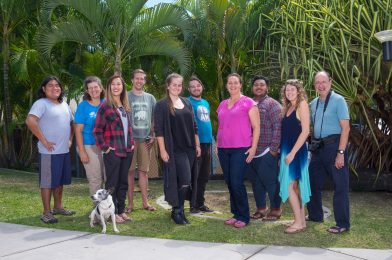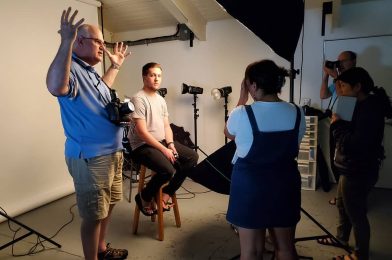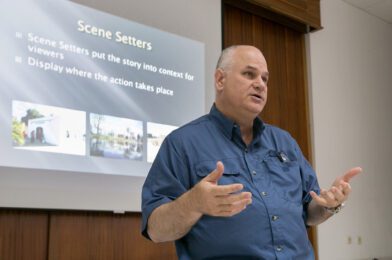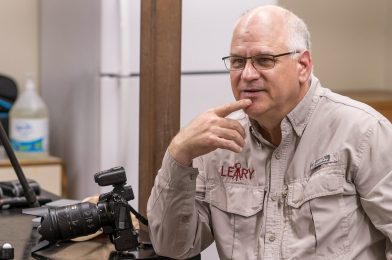Caption: This photo means a great deal to me. I’m pictured with Bill Bangham, one of my closest friends and longtime creative companions, and Eugene Richards, whose work has constantly reminded me that deep empathy and care for one’s subjects are not only possible but necessary. In many ways, this moment reflects the rare gift of being understood in a craft that often feels like a solitary path driven by relentless curiosity.
One of the hardest things I’ve had to come to terms with—especially as someone on the Autism Spectrum—is how difficult it is to find friends who will genuinely listen when I start talking about the topics I’ve taken a deep dive into.
These aren’t just casual interests. I don’t just “like” something—I dive in. I read, I re-read, I wrestle with the concepts. I chase it down rabbit holes, not for minutes or hours, but sometimes for years. Whether it’s storytelling, photography, theology, business practices, or even trumpet technique, I don’t let go of a topic easily. It sits with me, and I process it deeply over time.
But here’s the thing: that deep-dive thinking isn’t always welcome in everyday conversation. Even my wife, who loves me deeply and supports me in many ways, has her limits—especially when the topic doesn’t interest her like it does me.
That’s one of the fundamental challenges for those of us wired like this. For many people on the Autism Spectrum, deep curiosity is a kind of internal engine—it never shuts off. I’m constantly asking, “How can I do this better?” And I figure that out by repeatedly learning, revisiting, and reworking ideas. I don’t just want to learn something—I want to understand it from every angle. And I often want to talk it through as a way of thinking out loud.
But when you bring that intensity into regular conversations, you notice the blank stares—the polite nods. Or worse, people changing the subject. And slowly, you begin to pull back. You learn to bottle things up, to process quietly, because it feels safer than overwhelming someone you care about.
And it’s not just people on the Autism Spectrum who feel this. Those with ADHD, Obsessive Compulsive Disorder (OCD), Giftedness, or even those who identify as Highly Sensitive Persons (HSP) often experience this same struggle—being so consumed by a topic that you want to share it but not having many (or any) people who want to go there with you.
It can be lonely. And for me, it’s something I have to keep navigating.
I’m learning to seek out relationships where deep conversation is welcomed. I’ve found a few trusted friends who don’t flinch when I circle back to a subject I’ve already talked about a dozen times. They know I’m not stuck—I’m still learning, refining, and growing.
If you’re someone who relates to this, whether you’re neurodivergent or just deeply curious by nature, I want you to know you’re not alone. This intense engagement with the world is a gift, even if it sometimes feels isolating. Don’t stop learning. Don’t stop asking questions. But also, don’t stop searching for those rare people who can sit deep with you.
They’re out there.
And if you’re one of those people who can listen with patience and curiosity. You’re more valuable than you know.













